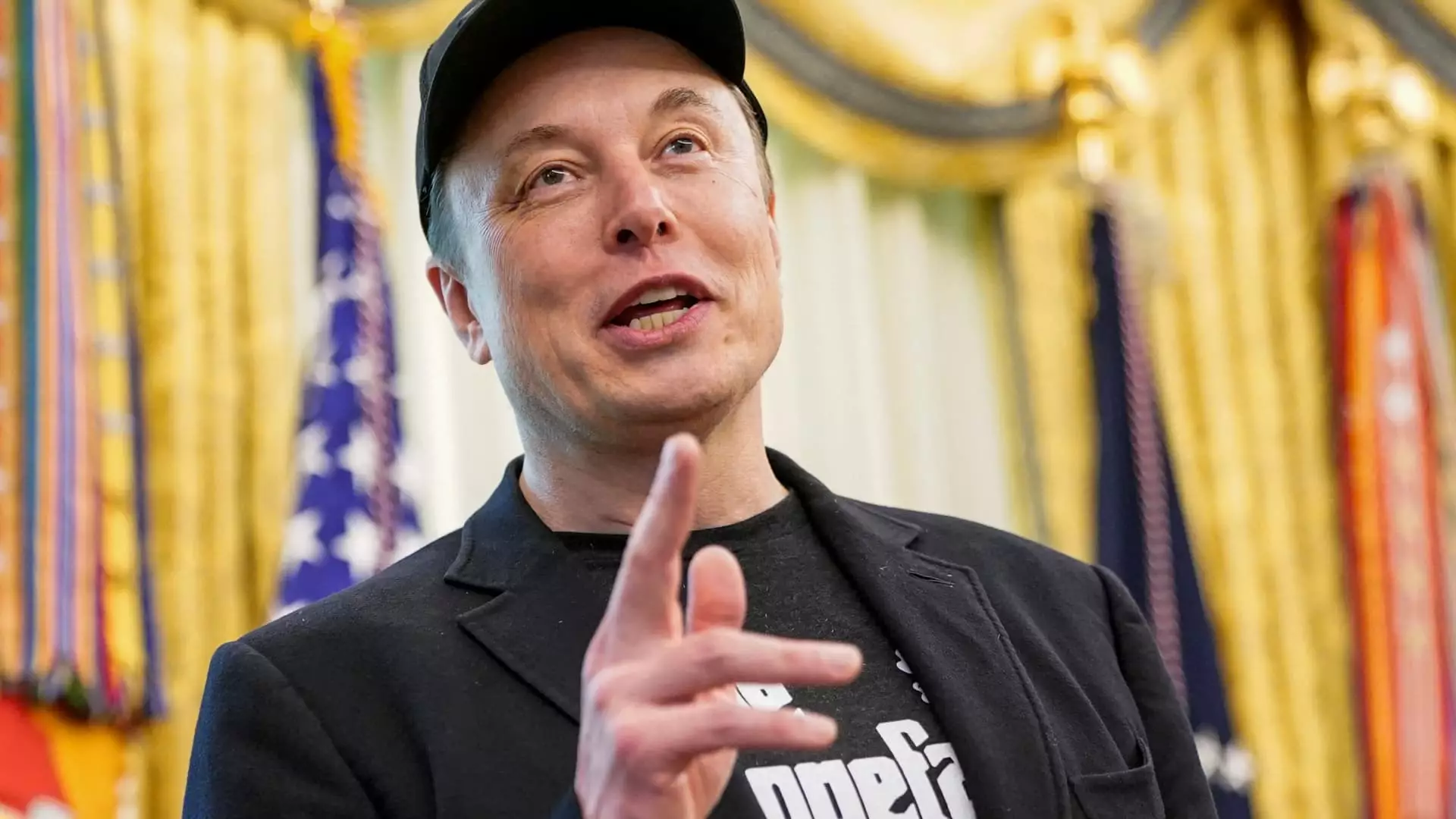The landscape of American politics has seen a whirlwind of emotions regarding fiscal policy in recent years, and few figures have epitomized this turmoil more than Elon Musk. Just recently, Musk unleashed a torrent of frustration at a tax-and-spending cut bill favored by former President Donald Trump, branding it as a “disgusting abomination.” His vehement criticism resonates through Twitter, challenging the very architecture of political discourse. For those who align with center-left liberalism, Musk’s perspective offers a powerful lens through which to examine the relationship between government spending, the debt ceiling, and the broader economic ramifications for ordinary citizens.
Musk’s accusations of the bill being “pork-filled” do not merely serve as a damning indictment but encapsulate a broader critique of governmental excess that transcends partisan lines. The billionaire’s role as a vocal advocate for fiscal restraint illustrates a growing discontent with how funding priorities reflect in both public policy and personal responsibility. The juxtaposition of his previous support for Trump complicates this critique, emphasizing the precarious balance between economic philosophy and political allegiance.
A Rising Deficit and the Burden of Debt
The implications of Musk’s assessment span beyond mere rhetoric; they carry weighty consequences for average Americans. He paints a grim picture of the federal deficit, predicting a climb to a staggering $2.5 trillion. This statistic is not just alarming—it’s a rallying cry for those who fear increasing governmental debt will inevitably fall on the shoulders of working-class individuals. The notion of a “crushingly unsustainable debt” is more than hyperbolic; it encapsulates the very real anxieties many Americans hold regarding their financial futures.
When pressed for a response, the White House dismissed Musk’s comments outright, insisting that the narrative surrounding the bill’s economic effects is fundamentally incorrect. But in redirecting the conversation as merely a point of contention with Musk—largely a billionaire with a checkered history of political alliances—this reluctance to engage more substantively with fiscal realities reveals a concerning disconnection between lawmakers and the electorate. By framing dissenting opinions as partisan bias, the administration runs the risk of alienating those who are rightly skeptical of unchecked fiscal policies.
Reform or Ruin: The Stakes of Bipartisan Agendas
The fallout from Musk’s critique is further amplified by unexpected allies within the Republican Party. His endorsement finds support in the voices of fiscal conservatives like Rep. Thomas Massie and Sen. Mike Lee, whose alignment with Musk underscores a critical reality: fiscal responsibility does not adhere strictly to party lines. Instead of a monolithic Republican consensus, an emerging bipartisan coalition appears willing to confront the reckless deficit spending that has become emblematic of not only Trump’s tenure but also the legacy of past administrations across the aisle.
What does this signify for the future of American financial policy? While partisan strategies often dictate legislative outcomes, the survival of middle-class prosperity hangs in the balance. The acknowledgment that Congress has “hollowed out America’s middle class” through fiscal negligence emphasizes a shared experience of disillusionment. Such realities render abstract debates over deficits and spending policies personal to many families who worry about the basic integrity and sustainability of their economic well-being.
The Illusions of Progress
Musk’s critique also raises a broader question about the efficacy of governmental spending as a tool for genuine economic progress. The spending bill, touted as a “beautiful” solution by the administration, arguably fails to address the pressing needs of everyday Americans. Instead of paving the way for growth, this bill risks entrenching a status quo defined by debt accumulation rather than opportunity.
Moreover, Musk’s remarks challenge the narrative of progress that often accompanies sizeable governmental spending initiatives. As the complexities of inflation, middle-class incomes, and burgeoning debt collide, the reliance on government bailouts rather than innovative solutions could sink America into deeper economic malaise. To truly advance, we must balance fiscal discipline with an authentic commitment to address the needs of the most vulnerable in society.
Musk’s brave stance speaks volumes about the urgency of this dialogue. In refusing to adhere to partisan loyalty, he forces both Republican and Democratic lawmakers alike to reckon with the fiscal realities that impact every American. The path forward must involve not just rhetorical flourishes but actual legislation that acknowledges and addresses the burden of debt without sacrificing the integrity of future generations.


Leave a Reply